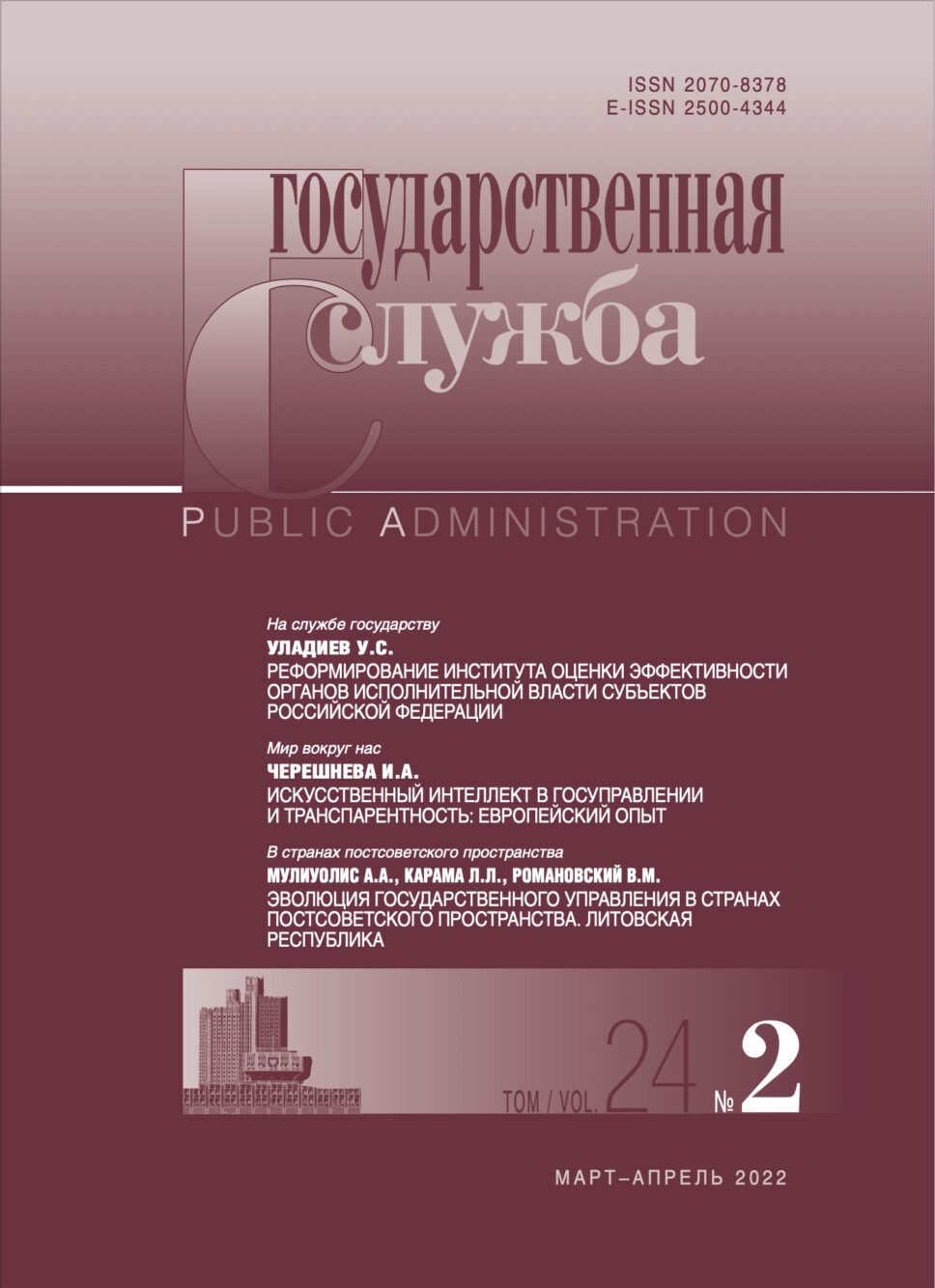Recommended link to article:
MERCEDES DELGADO FERNANDEZа
ANA GLORIA NAVARRO PENTONа
JOSÉ MIGUEL VALDES PORTALа
аHigher School of State and Government Cadres of Cuba (Escuela Superior de Cuadros del Estado y del Gobierno / ESCEG)
DOI: 10.22394/2070-8378-2022-24-2-68-74
Abstract:
This article highlights the contribution of the ESCEG – RANEPA collaboration for training managers in digital transformation skills. The authors emphasize the priority that the governments of Cuba and the Russian Federation give to the processes of digital transformation. The article demonstrates the main actions, results, and forecasts in international cooperation between the universities. As part of international cooperation, the Higher School of State and Government Cadres of Cuba and the Russian Presidential Academy of National Economy and Public Administration (RANEPA) are developing and implementing programs aimed at training civil servants and officials, acquiring the skills and competencies needed to manage the processes of digital transformation. Considering the experience of the Russian Federation in the processes of digital transformation of public administration and the actions taken by the Russian Presidential Academy of National Economy and Public Administration (RANEPA) in the development of management programs to educate civil servants and help them acquire the necessary skills to develop these processes, the Higher School of State and Government Cadres of Cuba (ESCEG) is now introducing these practices into own training courses. Higher School of State and Government Cadres of Cuba began a collaboration with RANEPA on September 17, 2019, which was consolidated by signing a Memorandum of Cooperation. This agreement refers to joint work in the areas of public administration and business, training of senior managers, as well as strengthening friendship between the parties. Despite the challenging epidemiological situation caused by COVID-19, cooperation is developing actively using remote technologies and is supported by the highest officials in the Russian Federation and Cuba
Keywords:
international cooperation, competencies, skills, personnel, training, digital transformation
Received:
March 24, 2022
References:
Cuba. Council of State. Decree-Law No. 370 of December 17, 2018 “On the Computerization of Society in Cuba”. The Official Gazette of the Republic of Cuba. July 4, 2019. No. 45. P. 763–777. https:// www.gacetaoficial.gob.cu/. In Spanish
Cuba. Ministry of Justice. Decree No. 484 of November 23, 2020 “Regulations on the organization and functioning of the Unified Register of Citizens”. The Official Gazette of the Republic of Cuba. November 30, 2020. No. 67. P. 505–509. https://www.gacetaoficial.gob.cu/. In Spanish
Cuba. Ministry of Justice. The Official Gazette of the Republic of Cuba. March 1, 2022. No. 20. P. 585–586. https://www.gacetaoficial. gob.cu/. In Spanish
Cuesta A., Linares M.A., Fleitas S., Delgado M. Human resource management // Delgado M. Academic coordinator. Business management topics. Volume IV. Havana: Felix Varela University Press, 2017. In Spanish
Delgado M. Business innovation // Delgado M. Academic coordinator. Business management topics. Volume II. Havana: Felix Varela University Press, 2017. In Spanish
Diaz-Canel M., Delgado M. Strategy map of balanced scorecard of the government management model oriented to innovation for COVID19. Cuban Journal of Public and Business Administration. 2021. No. 5 (2). https://doi.org/10.5281/zenodo.5453120. In Spanish
Kruen P.M., Van Genugten M. Opening up the black box of civil servants’ competencies. Public Management Review. 2019. https:// doi.org/10.1080/14719037.2019.1638442. In English
Articles in Open Access mode are published under the Creative Commons Attribution 4.0 International (CC BY) license.

